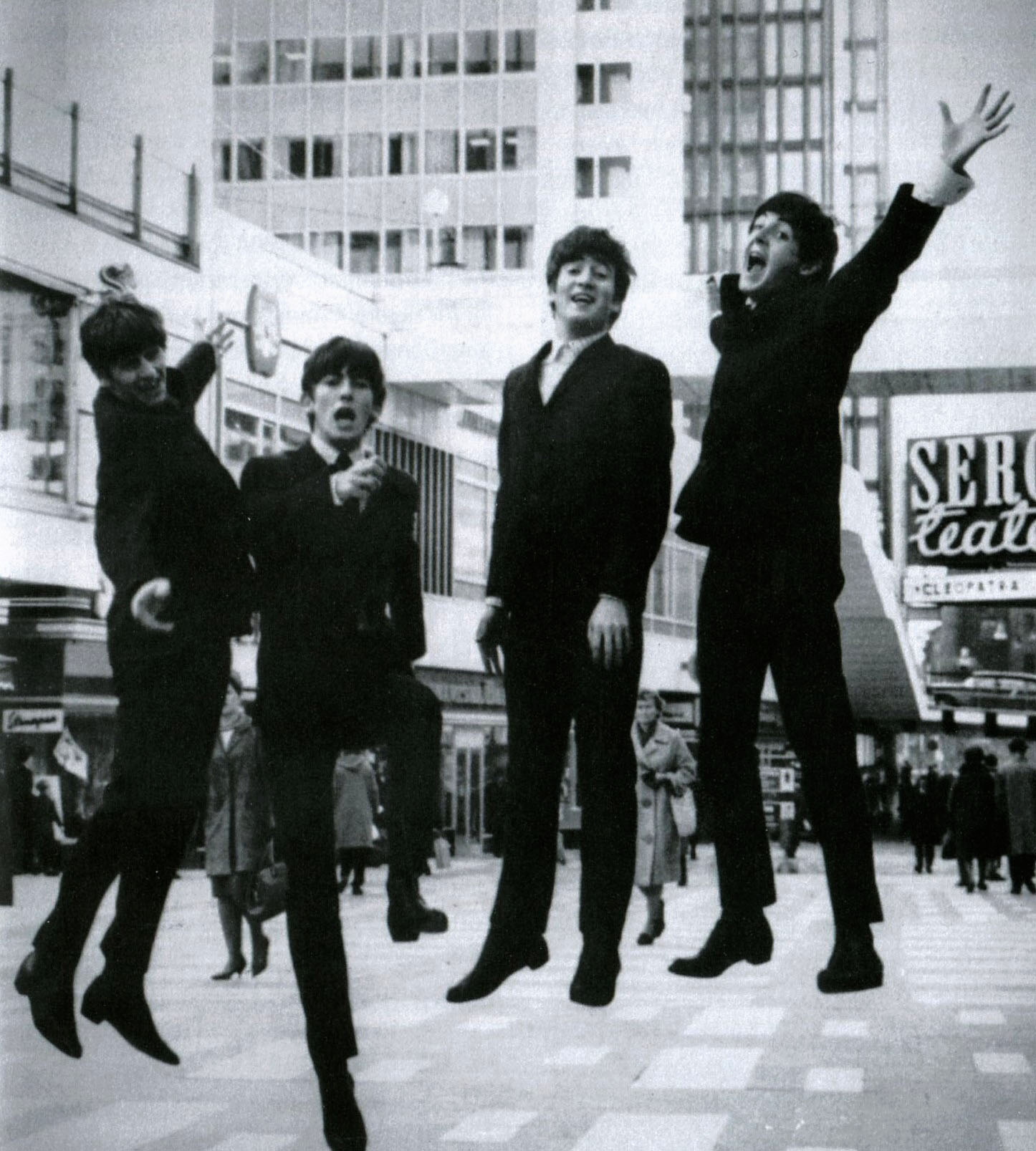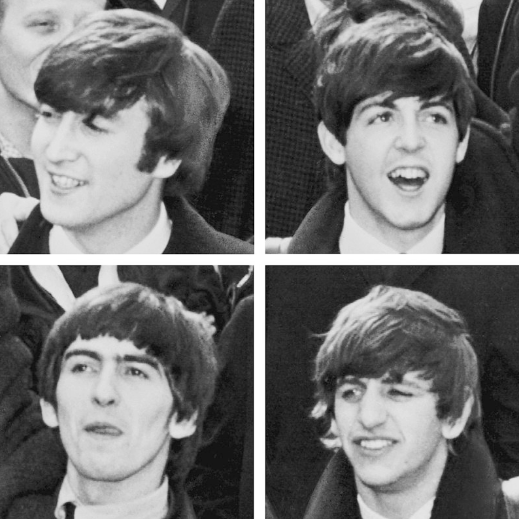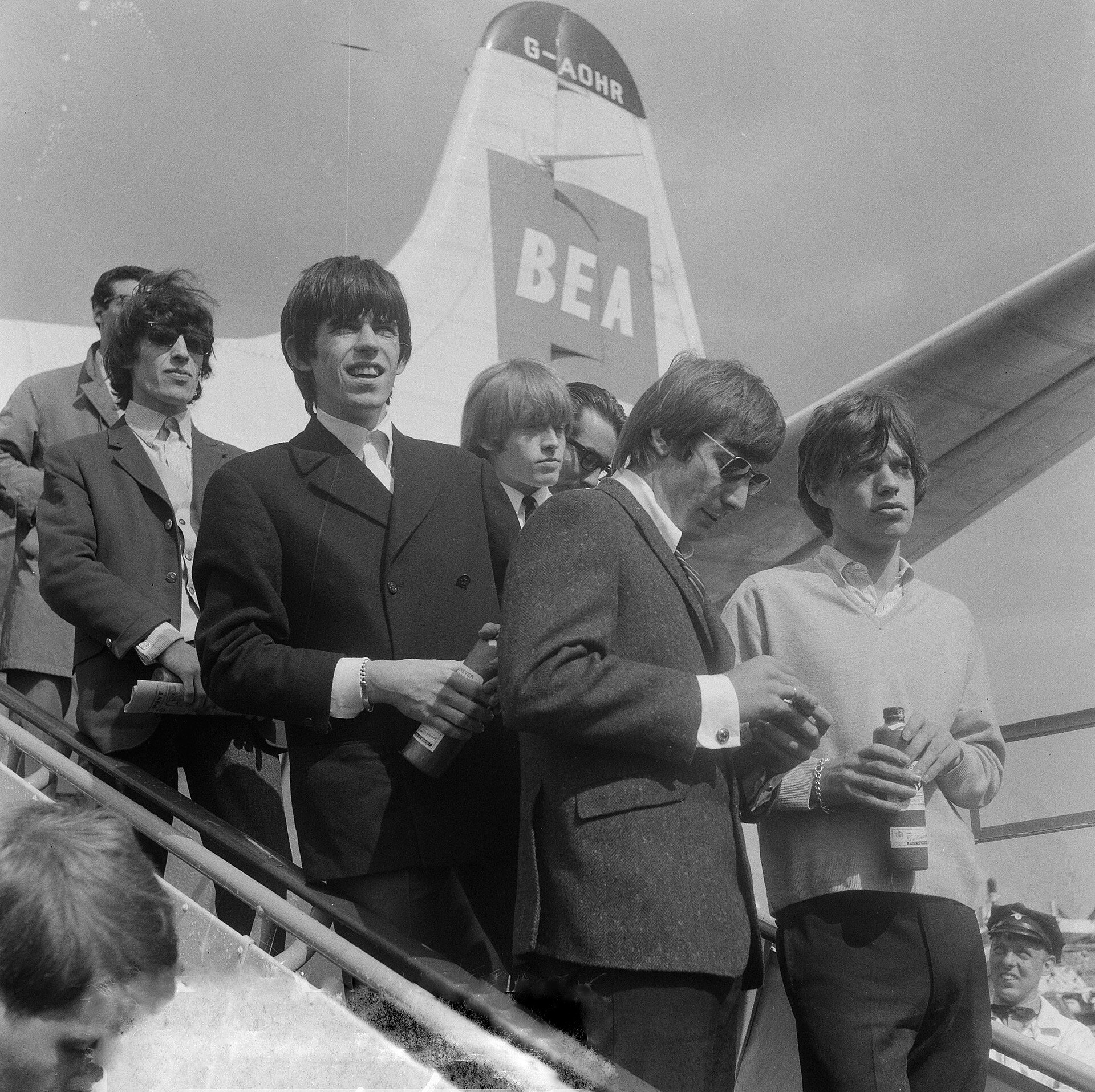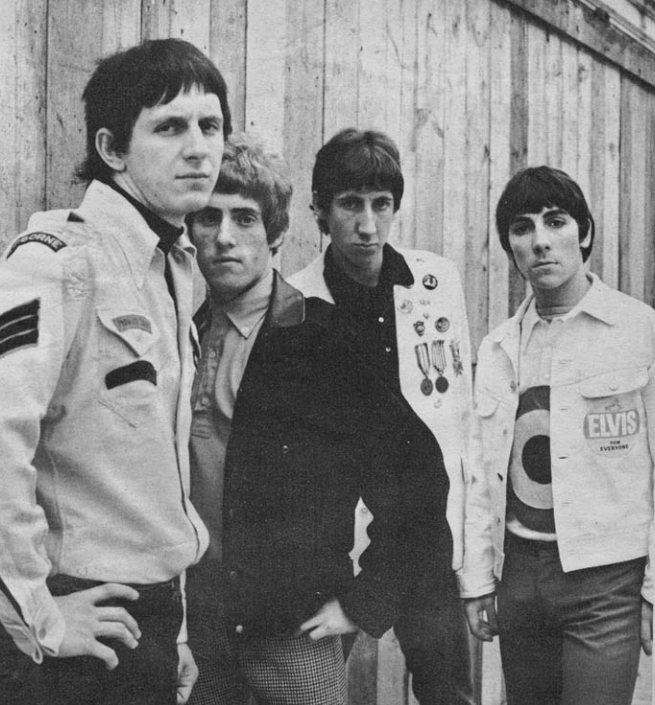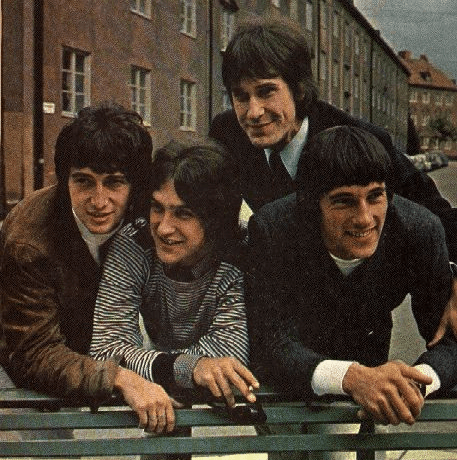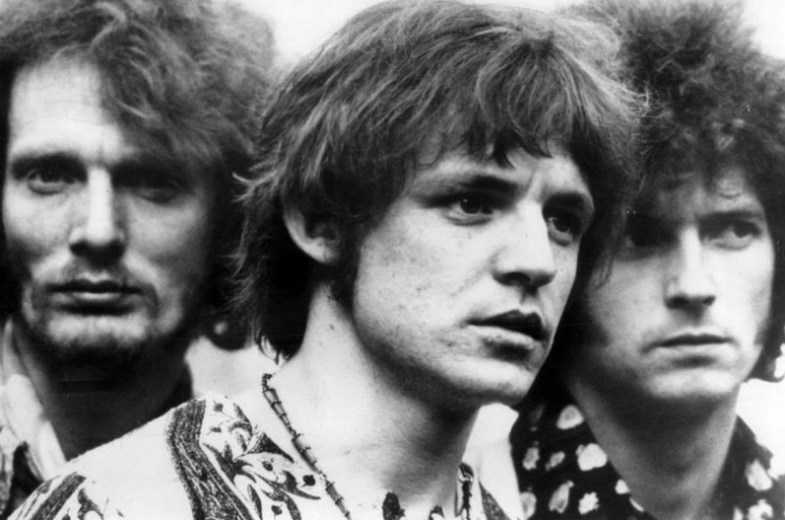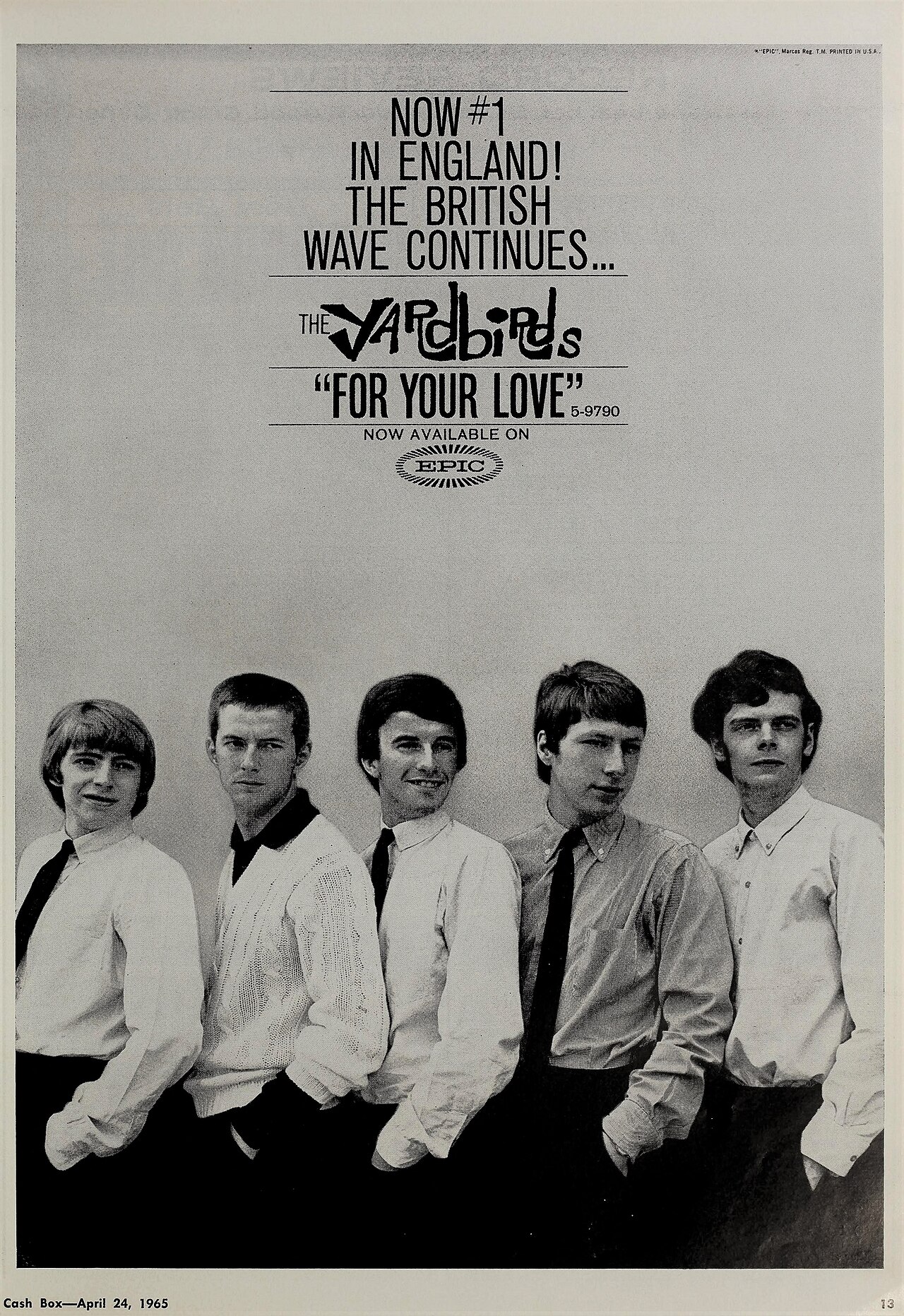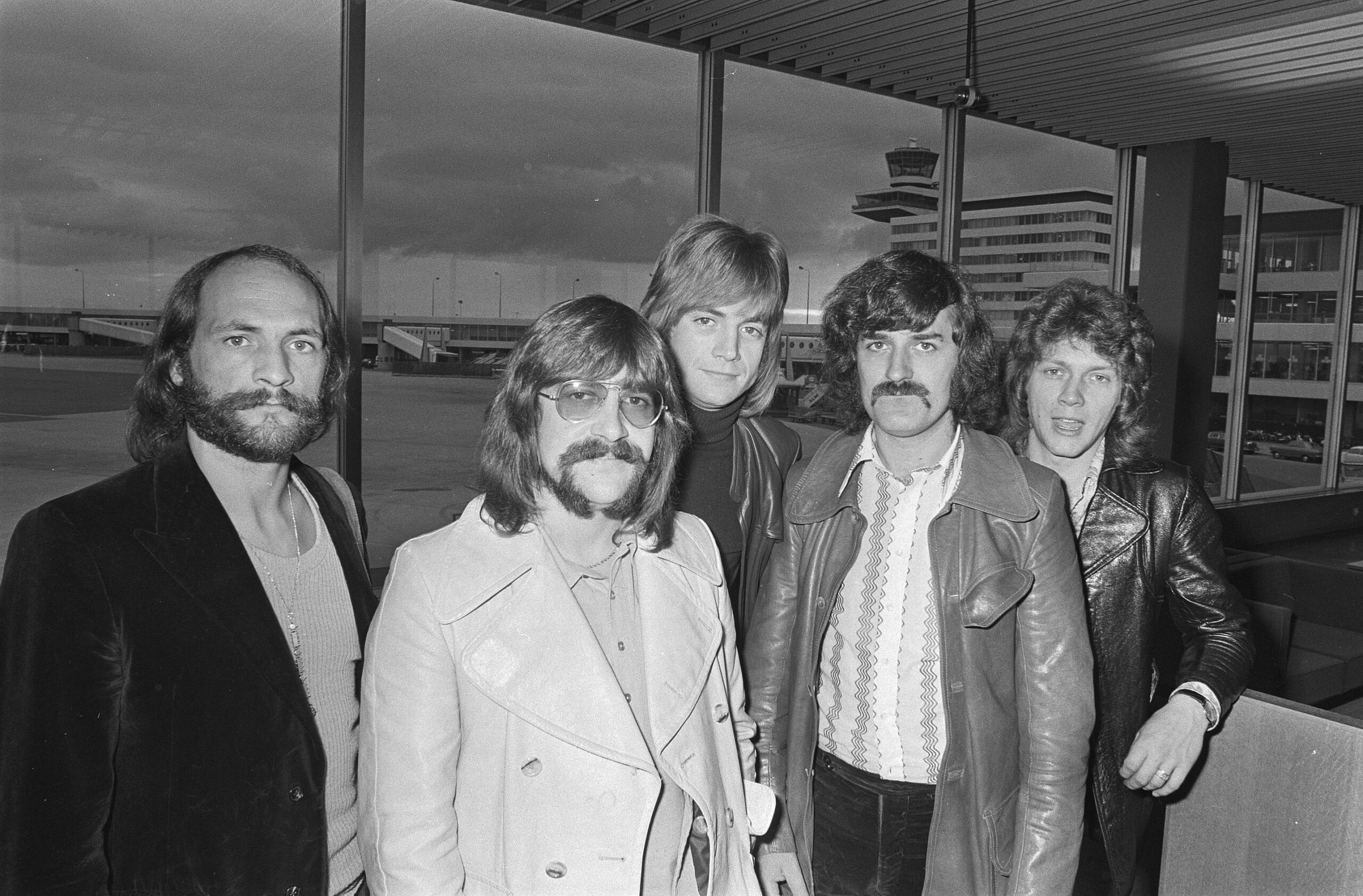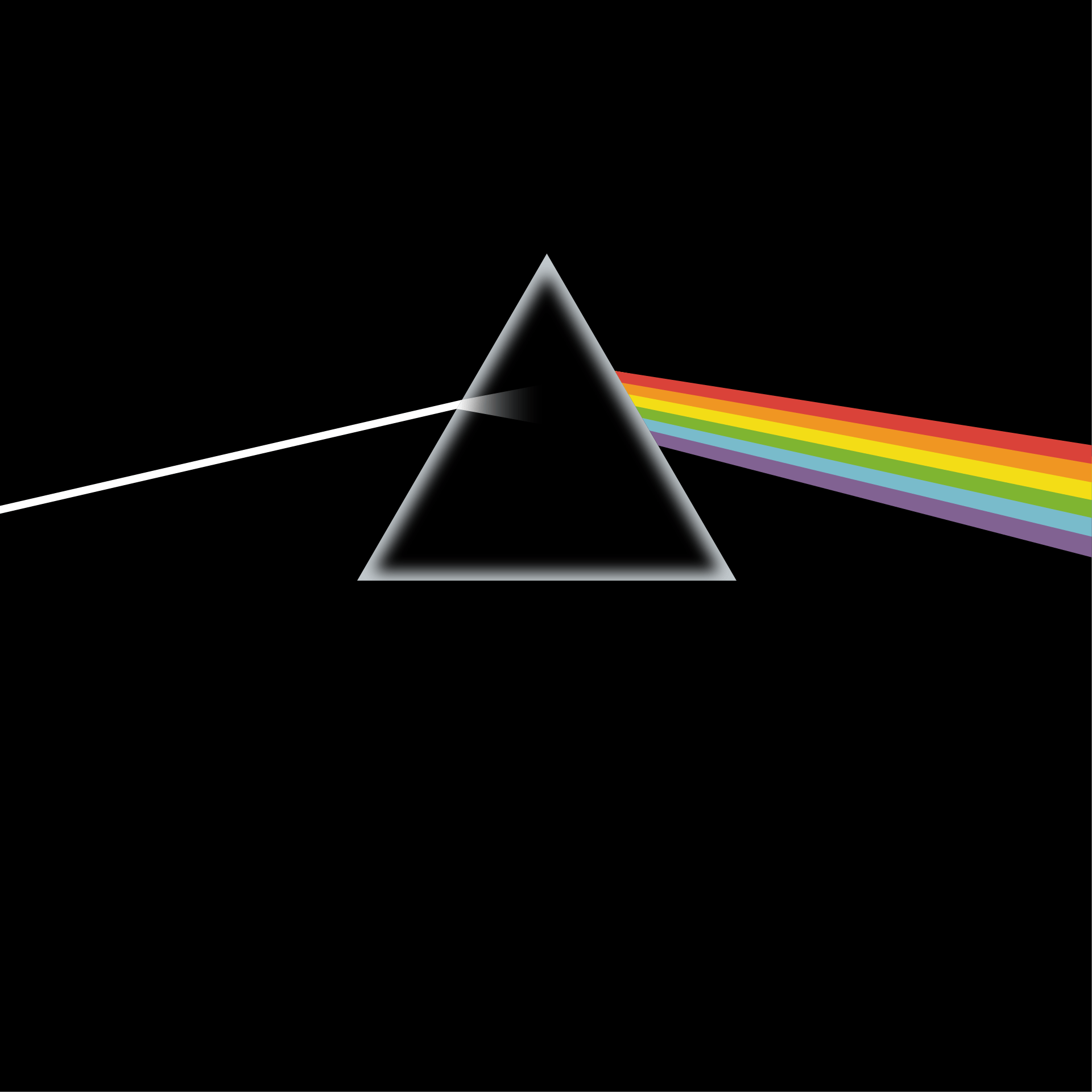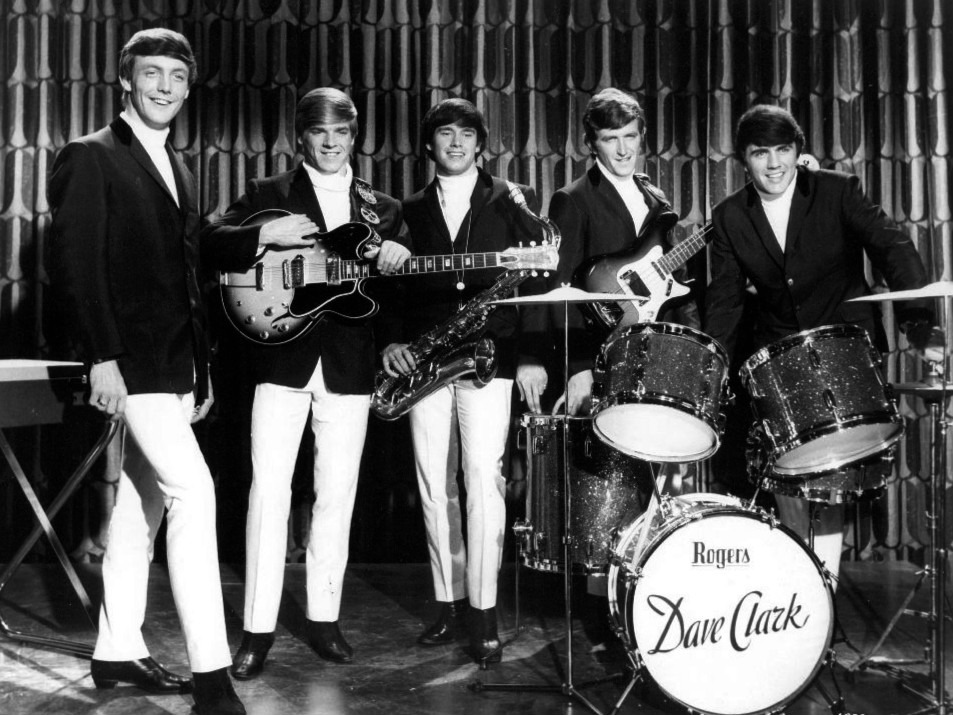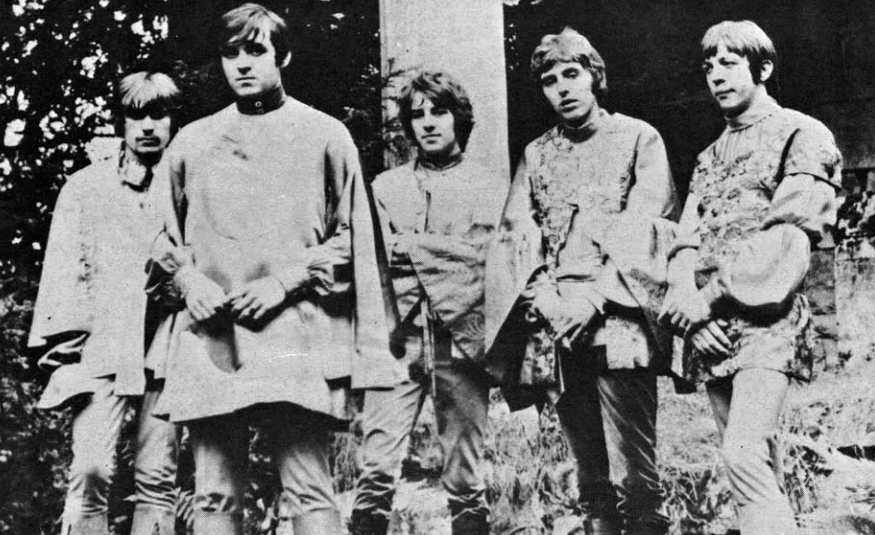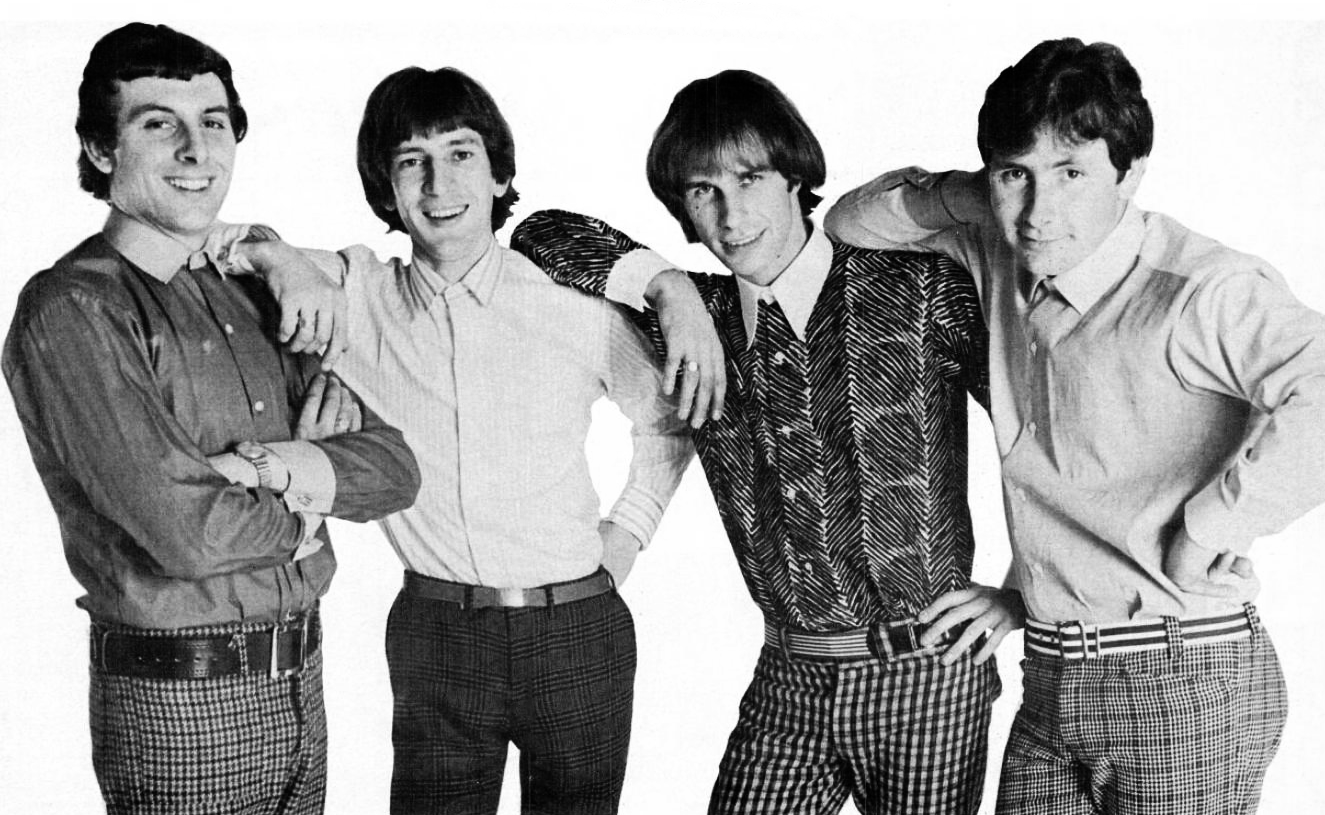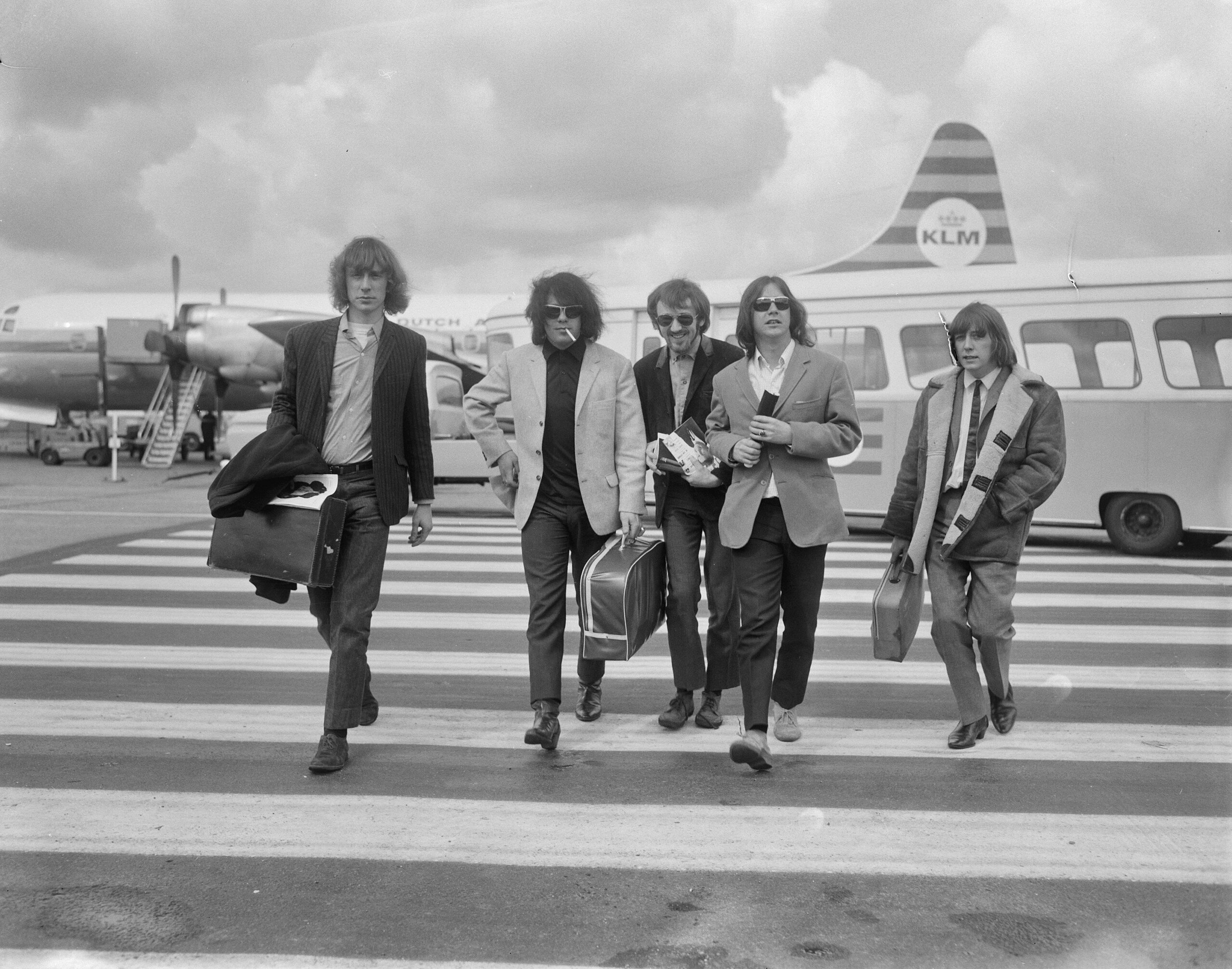The 1960s marked a revolutionary era in the history of music, particularly for British rock bands that took the world by storm. This decade saw the emergence of some of the most iconic and influential groups in the history of music. From the legendary Beatles to the gritty sounds of The Troggs, these bands didn’t just dominate the charts; they transformed the cultural and musical landscape globally. Amidst this era, even as numerous solo artists made their mark, it was the British bands that truly defined the 60s, creating an explosion of new sounds and styles that resonated across continents.
This period was characterized by incredible diversity and creativity in British rock. Bands like The Beatles and The Rolling Stones broke new ground with their innovative approaches to songwriting and performance, blending various genres to create unique sounds. The era was not only about commercial success but also about artistic experimentation. Bands were pushing the boundaries of what was considered mainstream, experimenting with new instruments, and exploring complex themes in their lyrics. This led to a dynamic and rapidly evolving music scene, where new genres like psychedelic rock and progressive rock began to take shape.
While many bands achieved great fame and left an indelible impact on music, others found it challenging to navigate the fiercely competitive and ever-changing landscape of the 60s music scene. This period was not just about the music; it was a cultural revolution that these bands were at the forefront of, influencing fashion, attitudes, and social norms. Their legacy continues to influence musicians and music lovers alike, making the 60s an unforgettable chapter in the history of rock music.
The Beatles
The Beatles were considered the most important and popular act of the 60s. Even though some very outstanding solo artists were also occupying the scene, The Beatles overtook everyone. Formed in 1960 in Liverpool, the band featured John Lennon, Paul McCartney, Ringo Starr, and George Harrison. The lineup was so strong that the band was termed the most influential band of all time.
The Beatles played a huge role in popularizing and development of 1960s counterculture. Throughout their career, the group experimented with different types of music and pioneered songwriting, recording, and artistic presentation. As a result, they helped revolutionize many aspects of the industry and were looked upon by the youth as sort of their leaders.
The band became international stars by early 1964 and soon released their album ‘A Hard Day’s Night’. Selling millions of records and breaking many as well, the Beatles became the best-selling music act of all time.
The Rolling Stones
Following The Beatles, The Rolling Stones were formed in 1962. Fronted by Mick Jagger who was known to be the greatest frontman ever, the band mostly covered dark themes. For instance, Sympathy for the Devil and Paint it, Black. The Rolling Stones was perhaps the first band that pioneered and defined hard rock. Apart from Mick Jagger, the group had guitarist Keith Richards, bassist Bill Wyman, and drummer Charlie Watts.
While the band was going through its formative years, Brian Jones was the primary leader. He gave the band its name, identity, and direction. However, in 1963, Andrew Loog Oldham became the band’s manager and encouraged the band to write their own songs. As a result, Jagger and Richards became the driving force behind the band, leaving out Jones who was involved in drug addiction with nothing meaningful to contribute.
In Total, The Rolling Stones sold over 240 million records worldwide, making them one of the best-selling music artists of all time. In addition to that, the band managed to win three Grammy Awards and a Grammy Lifetime Achievement Award.
The Who
Formed in 1964 in London, The Who was an English band featuring lead singer Roger Daltrey, singer Peter Townshend, drummer Keith Moon, and bass guitarist and singer John Entwistle. The band is credited for selling more than 100 million records worldwide and is also termed as one of the most influential rock bands of the 20th century.
The band’s contribution to rock music was significant interms of the development of large PA systems, Marshall stack, and the use of the synthesizer. To this day, The Who is amongst the few bands of the 60s that receive exposure due to their music. The band released their first single ‘I Can’t Explain’, which reached the UK top ten. Following the hit singles, the band released several others that continued to climb the top spots.
The band had a good run until the end of 1976 when they semi-retired from the scene. Unfortunately, drummer Keith Moon had passed away and the band’s album ‘Who Are You” was overshadowed by his death. The band split in 1983 and later formed again in 1985 offering live performances and going on tours following Entwistle’s death.
The Kinks
The Kinks were formed in 1963 in London by Ray and Davies who were brothers. The band was considered one of the most influential rock bands of the 60s and had a fair amount of role in the British Invasion of the United States until their ban in 1965.
The band’s third single “You Really Got Me” became an international hit, selling millions of records and reaching the Top 10 in the United States. The band played a variety of music such as American R&B and rock and roll while adopting folk, music hall, and the country later. The Kinks are known to have five Top 10 singles on the US Billboard chart. In total, nine of their albums charted the Top 40.
In the UK, the band had seventeen Top 20 singles and five Top 20 albums. Four albums of the band have been certified gold by the RIAA and the group has sold over 50 million records worldwide. The year 1990 saw the band being inducted into the Rock and Roll Hall of Fame while receiving several honors such as the Ivor Novello Award for “Outstanding Service to British Music”.
Although the band tried to reform itself and release a new studio album in 2018, comments made by the Davies brothers in 2020 and 2021 indicate that little to zero progress has been made in recent years.
Cream
The Cream was formed in 1966 in London and included bassist Jack Bruce, drummer Ginger Baker, and guitarist Eric Clapton. Bruce served as the primary vocalist and songwriter while Clapton and Baker also contributed songs. The band was known for the instrumental proficiency displayed by each of its members.
The band did not survive long primarily due to tensions between Bruce and Baker. As a result, the band decided to break up in 1968 but were persuaded to make a final album titled “Goodbye” along with a tour and two farewell concerts at the Royal Albert Hall. The two concerts were recorded and shown in theatres and released in 1977 as a Farewell Concert home video. In 1993, Cream was inducted into the Rock and Roll Hall of Fame and VH1’s and Rolling Stone lists of the “100 Greatest Artists of All Time”.
The Yardbirds
The Yardbirds were formed in 1963 in London and credited for kickstarting the careers of rock’s three most famous guitarists, Jimmy Page, Eric Clapton, and Jeff Beck. These three guitarists are considered to be The 10 Best Guitarists of the 1960s. Throughout the 1960s, the band had released hits including, “For Your Love”, “Shapes of Things”, “Heart Full of Soul” and “Over Under Sideways Down”.
Originally, the band came up as a blues-based band but gradually broadened their range into early hard rock, pop, and psychedelic rock. According to some historians and critics, the band had a great influence on later progressive rock, punk rock, and heavy metal trends. The year 1968 saw the band splitting and Relf and McCarty formed Renaissance while Jimmy Page formed Led Zepplin. In 1992, the band was inducted into the Rock and Hall of Fame.
Although the band formed in the 1990s with Jim McCarty and Chris Dreja, but Dreja left the band in 2012, leaving McCarty as the only original member of the band in the lineup.
The Moody Blues
The Moody Blues, who founded in Birmingham in 1964, became one of the most innovative bands on the British music scene of the 1960s. They first became known for their single “Go Now” in 1965, a bluesy, rhythm and blues number that displayed their early sound.
However, it was their groundbreaking mix of rock and classical music elements that actually distinguished them. This distinct blend was most prominently displayed on their seminal album “Days of Future Passed” (1967), which includes the timeless classic “Nights in White Satin.”
Throughout their existence, the Moody Blues continued to evolve and experiment, resulting in a vast repertoire spanning decades. Their music, which featured lavish orchestral arrangements and meaningful, literary lyrics, struck a chord with a new generation of listeners. Justin Hayward, John Lodge, Mike Pinder, Ray Thomas, and Graeme Edge all made substantial contributions to the band’s sound, integrating harmonies, mellotron, and flute with traditional rock instruments.
The long legacy of the Moody Blues is a testament to their artistic vision and ability to flawlessly integrate numerous musical styles into a unified and engaging sound.
The Hollies
The Hollies, a band that was founded in Manchester in 1962, rose to prominence as an integral part of the British Invasion sound. Fronted by Allan Clarke and Graham Nash, with Tony Hicks on lead guitar and vocals, the band became famous for their unusual three-part vocal harmonies.
The group’s music was a smooth fusion of pop and rock, with memorable hooks and driving guitar solos. Many of their songs, such as “Bus Stop,” “Carrie Anne,” and “He Ain’t Heavy, He’s My Brother,” became huge hits and are still enjoyed today. The Hollies’ music was known for its peppy, pop-oriented sound that was both easily approachable and musically rich, making it popular with a wide range of listeners.
The Hollies’ impact on 1960s music goes beyond their number one singles. They were remarkable for the quantity and quality of music they produced and for their ability to ride the waves of musical fashion.
The band’s success and popularity persisted even after Graham Nash left in 1968 to establish Crosby, Stills, Nash & Young. The variety and skill that has allowed them to thrive for so long is clear.
The Animals
The Newcastle upon Tyne-based rock band The Animals shot to success during the ’60s British Invasion thanks to their distinctive brand of gritty, blues-infused hard rock.
They played blues and R&B at their core, led by the charismatic and deep-voiced Eric Burdon, but with a raw energy and intensity that connected with listeners. In 1964, they had the number one single in the United Kingdom and the United States with “The House of the Rising Sun,” a rock version of a classic folk song. With its unforgettable organ riff and Burdon’s heartfelt vocals, this song marked a watershed point in the history of British rock.
The Animals’ impact was much larger than just their chart-topping tunes. Their live shows were legendary, showcasing not just Burdon’s commanding vocals but also the skill of musicians like Alan Price on organ and Hilton Valentine on guitar. Their music frequently featured social commentary that represented the members’ working-class upbringings.
The Zombies
The Zombies, established in 1962 in St Albans, England, is recognized as one of the most accomplished and distinctive bands of the British Invasion of the 1960s. They introduced a level of sophistication to the era’s pop music landscape with their own blend of lyrical, jazz-influenced rock.
The band, fronted by keyboardist Rod Argent and vocalist Colin Blunstone, is best known for their hit singles ” She’s Not There” and “Time of the Season.” Argent’s keyboard work, Blunstone’s breathy and expressive vocals, and the intricate harmonies and compositions set their music apart from other bands.
The Zombies made their most major musical contribution with their 1968 album “Odessey and Oracle,” a classic pop masterpiece that, while not initially a commercial success, has subsequently been considered as one of the best albums of the 1960s.
Although The Zombies dissolved shortly after the album’s release, their music has since gained fame and influence. The band’s reputation is defined by its creative approach to pop and rock music, which incorporated different musical influences into a sound that was both accessible and artistically rich.
Pink Floyd
Pink Floyd, formed in 1965 in London, England, quickly became one of the most influential and innovative bands in the British rock scene during the 1960s. Originally consisting of Syd Barrett, Roger Waters, Richard Wright, Nick Mason, and later joined by David Gilmour, Pink Floyd’s impact on the music of the era was profound, particularly in the development of psychedelic and progressive rock.
In the late 1960s, Pink Floyd emerged as a leading figure in the London psychedelic scene with their debut album, “The Piper at the Gates of Dawn” (1967). Under the primary creative direction of Syd Barrett, the band’s early music was characterized by experimental soundscapes, innovative use of guitar effects, and whimsical, surreal lyrics. Their sound and light shows at venues like the UFO Club became legendary, setting a new standard for rock concert performances.
Pink Floyd’s music evolved rapidly after Barrett’s departure in 1968, with the band delving into more complex and thematic compositions. This shift marked their significant contribution to the emerging genre of progressive rock. Albums like “A Saucerful of Secrets” (1968) and “More” (1969) showcased their experimental approach, combining rock with avant-garde and electronic influences.
The Small Faces
The Small Faces were a significant British rock band from the 1960s, known for their pivotal role in the Mod subculture and their influence on the development of British rock and pop music. Formed in 1965 in East London, the group originally consisted of Steve Marriott, Ronnie Lane, Kenney Jones, and Jimmy Winston (later replaced by Ian McLagan).
In addition to their early R&B-influenced work, The Small Faces were instrumental in the psychedelic rock movement that emerged in the mid-to-late 1960s. Their 1967 album “Ogdens’ Nut Gone Flake,” with its innovative use of studio effects, concept-story format, and whimsical lyrics, is considered a classic of the genre. The album’s mix of hard rock, psychedelia, and whimsy was groundbreaking and showed the band’s versatility and creativity.
The Small Faces’ impact on 60s British rock can be seen in their influence on both the music and fashion of the era. They helped to popularize a uniquely British blend of rock, infused with elements of R&B and soul. The band’s exploration of psychedelic sounds also contributed to the wider movement in rock music during the late 1960s.
The Spencer Davis Group
The Spencer Davis Group, formed in 1963, was a prominent British rock band known for their influential role in the 1960s music scene, particularly in the genres of R&B and blues rock. The group was founded by Spencer Davis, a Welsh musician, along with brothers Steve Winwood and Muff Winwood, and drummer Pete York.
The band’s sound was characterized by its blend of gritty R&B and distinctively British rock elements. Their music was driven by Steve Winwood’s powerful and soulful voice, along with his proficient keyboard and guitar playing. This combination helped to create a distinctive sound that was both raw and melodic.
The Spencer Davis Group is perhaps best known for their hit songs “Gimme Some Lovin'” and “I’m a Man,” both of which showcased the band’s energetic style and were significant successes on both sides of the Atlantic. These tracks have since become staples of the 60s rock era, renowned for their driving rhythms and catchy melodies.
Their impact on the British rock scene of the 1960s was notable, as they were part of the wave of British bands that successfully blended traditional American blues and R&B with a more aggressive and distinctly British rock sound. This approach not only appealed to a wide audience but also influenced the direction of rock music in that era.
Herman’s Hermits
Herman’s Hermits, formed in Manchester, England in 1964, were a significant part of the British Invasion of the 1960s, a movement where numerous British rock and pop artists gained unprecedented popularity in the United States and worldwide. Fronted by Peter Noone, often referred to as “Herman,” the band was known for its catchy, light-hearted pop songs and clean-cut image, distinguishing them from some of the more rebellious acts of the era.
Herman’s Hermits’ music was characterized by its upbeat, melodic pop sound, often with simple, catchy hooks and wholesome lyrics. Their style appealed to a broad audience, including younger listeners, and represented a more radio-friendly, pop-oriented side of the British Invasion. Hits like “I’m Into Something Good,” “Mrs. Brown, You’ve Got a Lovely Daughter,” and “There’s a Kind of Hush” became synonymous with 1960s pop music.
The band’s success in the United States was significant. They were one of the top-selling British acts of the mid-60s, rivaling even The Beatles in terms of record sales at certain points. Their approachable style and catchy tunes were instrumental in widening the appeal of British music in international markets, particularly in the United States.
The Dave Clark Five
The Dave Clark Five, often simply referred to as “The DC5,” were an integral part of the British Invasion of the 1960s, a movement that saw British rock and pop bands achieve unprecedented success in the United States and globally. Formed in Tottenham, London, in 1957, and led by drummer and manager Dave Clark, the group rose to fame with their unique sound and energetic performances.
One of their most famous songs, “Glad All Over,” knocked The Beatles’ “I Want to Hold Your Hand” off the top spot on the UK charts in 1964, signaling their arrival as major players in the British rock scene. Other hits like “Bits and Pieces” and “Do You Love Me” further solidified their popularity. The Dave Clark Five were one of the first British bands to tour the United States, and their appearance on “The Ed Sullivan Show” marked the beginning of a series of successful American tours.
The band’s influence extended beyond their chart success; they were also known for their self-contained approach to the music business, with Dave Clark having control over the band’s recordings and business decisions. This approach was somewhat pioneering at a time when artists frequently had little control over their work.
Procul Harum
Procol Harum, formed in 1967, was a British rock band renowned for their influential blend of rock, classical, and baroque music, which played a significant role in the development of progressive rock during the 1960s. The band, initially comprised of Gary Brooker, Keith Reid, Matthew Fisher, Robin Trower, and others over the years, achieved early success and left a lasting impact on the music of the era.
Their debut single, “A Whiter Shade of Pale,” became an instant classic and is one of the best-selling singles in history. With its Baroque-inspired organ melody and enigmatic lyrics, the song encapsulated the spirit of the late 1960s and is often considered a defining track of the era.
Procol Harum’s influence in the 1960s extended beyond their hits. They were among the early pioneers of progressive rock, a genre that sought to elevate rock music to new levels of artistic credibility. Their classical and baroque inspirations contributed to the expansion of the musical vocabulary within the rock genre, paving the way for other progressive rock acts that followed.
The Troggs
The Troggs were a British rock band formed in the early 1960s, best known for their raw and energetic style of garage rock. Hailing from Andover, Hampshire, the band originally consisted of Reg Presley, Chris Britton, Pete Staples, and Ronnie Bond. They rose to fame with their 1966 hit “Wild Thing,” which became an anthem of the era and left a lasting mark on the landscape of rock music.
“Wild Thing,” written by American songwriter Chip Taylor, was emblematic of The Troggs’ style. Its raw sound, simple three-chord structure, and suggestive lyrics captured the rebellious spirit of the 1960s youth. The song’s success helped cement the band’s place in rock history and influenced the development of future music genres, particularly punk and garage rock. Bands like The Ramones and Iggy Pop cite The Troggs as an influence on their music.
The Troggs’ other hits, such as “With a Girl Like You” and “Love is All Around,” while softer and more melodic, still carried the band’s signature straightforward and heartfelt approach to rock music.
The Troggs’ contribution to 1960s British rock lies in their embodiment of the garage rock ethos, characterized by its raw sound and defiant attitude. They demonstrated that effective and impactful rock music could be made with basic chords and uncomplicated structures, inspiring a wave of bands that would embrace this back-to-basics approach.
Traffic
Traffic, formed in 1967, was a seminal British rock band known for their innovative fusion of rock, folk, and jazz elements, significantly contributing to the 1960s rock music landscape. The band, initially consisting of Steve Winwood, Jim Capaldi, Chris Wood, and Dave Mason, became renowned for their experimental approach and musical versatility.
Traffic’s music defied easy categorization, blending rock, folk, jazz, and psychedelia into a unique sound. They were among the pioneers of the progressive rock movement, known for their complex musical arrangements and improvisational style. Their debut album, “Mr. Fantasy” (1967), showcased their eclectic approach and set the tone for their subsequent works.
Traffic was distinguished by their willingness to experiment and incorporate a variety of instruments and styles into their music. This experimentation was evident in albums like “Traffic” (1968) and “John Barleycorn Must Die” (1970), which featured extended jams, diverse instrumentation, and a blend of different musical genres.
In the late 1960s, Traffic contributed to the evolution of British rock, pushing the boundaries of traditional rock music. Their integration of jazz and folk elements into a rock framework was particularly influential, prefiguring many of the developments in progressive and art rock. Steve Winwood’s soulful vocals and virtuoso keyboard and guitar playing, combined with the group’s innovative songwriting, made Traffic a key player in the British rock scene.
Traffic’s impact extended beyond their immediate success in the 1960s. The band’s innovative approach to music and willingness to explore new sounds influenced many musicians in the progressive rock genre. Their exploration of different musical textures and styles helped to broaden the possibilities of rock music, contributing to the genre’s evolution in the late 1960s and beyond.
The Pretty Things
The Pretty Things, formed in 1963 in London, were an influential British rock band known for their raw, energetic style and contribution to the evolution of rock music in the 1960s. The band was formed by Dick Taylor, a former member of the Rolling Stones, and vocalist Phil May, and quickly gained a reputation for their gritty sound and rebellious image.
The Pretty Things played a significant role in the development of garage rock, with their early records influencing the garage and punk rock movements that emerged in the late 1960s and 1970s. As the decade progressed, they also ventured into psychedelic rock, with albums like “S.F. Sorrow” (1968), which is considered one of the first rock operas, predating The Who’s “Tommy.” This album, in particular, showcased their ability to evolve and experiment with more complex and conceptual compositions.
Despite not achieving the same level of commercial success as some of their British Invasion counterparts, The Pretty Things’ influence on rock music was profound. Their aggressive style and unapologetic approach to rock music paved the way for future generations of punk and garage bands. “S.F. Sorrow,” while initially overlooked, has since been recognized as a significant work in the history of rock music, influencing the evolution of the genre and the concept album format.
Final Words
The 1960s were a turning point in British music, bringing in some of the most influential and iconic bands in rock history. From the innovative and internationally adored Beatles to The Rolling Stones’ blues-infused raw energy, each band introduced their own flavor to the music landscape. These bands not only established a generation’s soundtrack, but also created the framework for innumerable musical styles and performers that followed.
Today, the influence of 60s British rock is still profoundly felt. The era’s music continues to be celebrated, its classic hits regularly featured on radio stations, in films, and in the collections of music enthusiasts worldwide. New generations of musicians draw inspiration from the pioneering sounds of the 60s, keeping the spirit of that transformative era alive. The 60s may have been a time of great change and upheaval, but the music it produced remains timeless, a testament to the enduring power and appeal of British rock.

